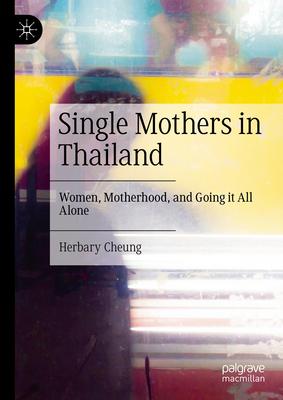This book investigates a range of major sociological debates and policy studies related to gender, family, marriage, health, intersectionality, and social exclusion of single mothers in Thailand. It does so by analyzing ethnographic data gained from participant observation at NGOs and a psychiatric hospital, in-depth interviews with single mothers and social workers, and a review of government policy documents and reports from 2020 and 2021. The conceptual framework of the study draws on gender as a social construct and intersectionality as critical social theory. Using this framework, the book aims to offer new scholarly insights by looking at single mothers as a category of multiple and overlapping oppressions, marginalization, and exclusion, which intersect not only with gender, class, and ethnicity but also with other significant categories, such as hometown neighborhood, religion, and health conditions, all significant but under-researched subjects in the Thai context. Moreover, the book also provides policy recommendations to the Thai government to improve its social policies for single mothers and achieve gender equality in Thailand.

Single Mothers in Thailand: Women, Motherhood, and Going It All Alone
This book investigates a range of major sociological debates and policy studies related to gender, family, marriage, health, intersectionality, and social exclusion of single mothers in Thailand. It does so by analyzing ethnographic data gained from participant observation at NGOs and a psychiatric hospital, in-depth interviews with single mothers and social workers, and a review of government policy documents and reports from 2020 and 2021. The conceptual framework of the study draws on gender as a social construct and intersectionality as critical social theory. Using this framework, the book aims to offer new scholarly insights by looking at single mothers as a category of multiple and overlapping oppressions, marginalization, and exclusion, which intersect not only with gender, class, and ethnicity but also with other significant categories, such as hometown neighborhood, religion, and health conditions, all significant but under-researched subjects in the Thai context. Moreover, the book also provides policy recommendations to the Thai government to improve its social policies for single mothers and achieve gender equality in Thailand.